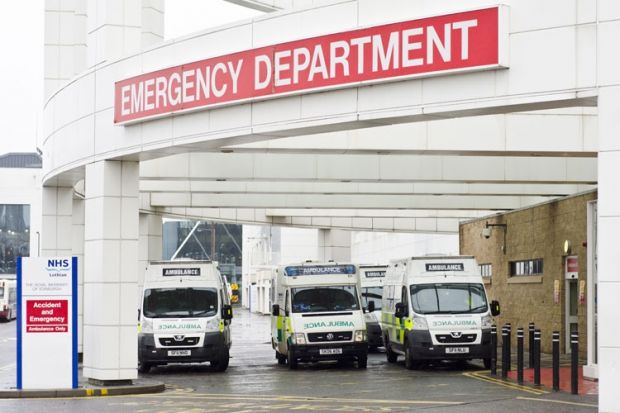Students from outside the European Union will be required to pay an annual £150 surcharge as a pre-condition to entry to the UK from April, with non-EU migrants charged £200 a year.
The new charge will raise around £200 million a year and offset the estimated £2 billion cost of providing free healthcare to overseas visitors, temporary non-EU workers and foreign students, the Home Office says.
However, Thom Brooks, professor of law and government at Durham University, has dismissed the charge and its implementation – a month before the general election – as a gimmick.
Professor Brooks claims the huge number of exemptions will mean the surcharge “might not support the NHS in the way it has been announced”.
Anyone visiting the UK for under six months, intra-company transfers, children under 18 years in care, and nationals of Australia and New Zealand are exempt from the charge.
Those non-EU nationals from the European Economic Area (EEA) – Iceland, Norway and Lichtenstein – are also exempt, as are tourists.
“Thousands of migrants will not need to pay because of several exemptions and restrictions,” he said, adding: “It’s a clear case of government saying one thing, but doing another.”
The National Union of Students has previously condemned the charge as “discriminatory, counter-intuitive and impractical”, saying non-EU students have a minimal burden on the NHS as they are younger, fitter and healthier than most people accessing the service.
It will disproportionately hit international students who make up to 75 per cent of those subject to visa controls, the NUS added.
Foreign students have also paid significant fees for processing their visas on top of their tuition fees, which are higher than those paid by UK and EU students, according to the union.
It also disputes the £2 billion figure put forward by the Home Office, stating the estimates of so-called “health tourism” have previously been put at anywhere between £10 million and £200 million.
However, immigration minister James Brokenshire has defended the charge, saying the “surcharge levels are lower than the cost of medical insurance required in some of our competitor nations”.
“For overseas students, the surcharge represents only 1 per cent of the total cost of studying in the UK for a three-year undergraduate course,” he added.
Dependants will generally pay the same amount as the main applicant, potentially doubling the cost of the policy for older postgraduates studying in the UK.
In addition, the Home Office says the Department of Health is working on proposals that will mean from April non-EEA visitors who use the NHS will be charged 150 per cent of the cost of their treatment.
This reflects the additional cost burden the NHS carries when managing the administration for visitors to the UK, it says.
Register to continue
Why register?
- Registration is free and only takes a moment
- Once registered, you can read 3 articles a month
- Sign up for our newsletter
Subscribe
Or subscribe for unlimited access to:
- Unlimited access to news, views, insights & reviews
- Digital editions
- Digital access to THE’s university and college rankings analysis
Already registered or a current subscriber? Login




